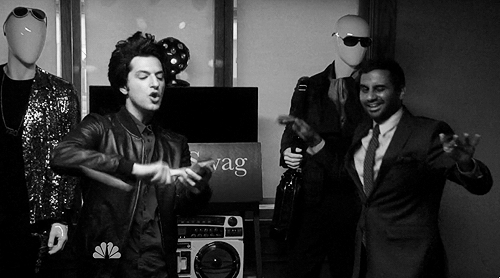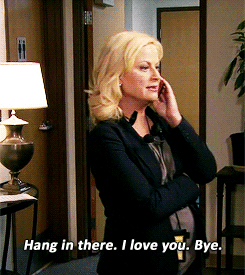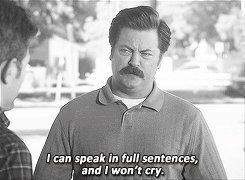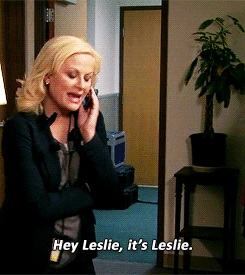Every so often I get an email, Facebook message or Tweet from undergraduates or recent graduates who want information on coming to America to work or study. I understand that the process can be daunting, so I'm going to attempt to answer the most common questions. In addition, I'd like to encourage all my readers to think very seriously about the personal and financial implications of going to graduate school, especially abroad. My experience of graduate school, while not perfect, has ultimately been fulfilling, and I want that to be the case for as many people as possible.
I'm speaking with an American Studies background, so this is probably most relevant to Humanities students. Unfortunately I don't know much about other disciplines, but hopefully some of this information will still be useful. If I haven't answered your questions in this post, please leave a comment here and I will try to get back to you with my own knowledge or other resources. Also, if you have any questions about me/my life trajectory in general, please let me know as I am attempting to make a blog FAQ!
On to the questions...
The Application
That's the most simple answer: because you really, really want to. But the other benefits that I will mention are the great funding opportunities, the length of the program (2 years as opposed to 1 year at home), and the fact that it's more chance to do relevant field work (in American Studies) and get a daily experience of a foreign culture. It's also excellent for making global connections and showing employers that you can achieve something truly impressive.
Where should I apply?
I'd recommend coming up with a list of possible schools to apply to. How many you actually apply to is up to you (and bear in mind that there are application fees for each); I know people that applied to just 1, 3 or as many as 10. Start with a good ol' Google search of MA programs and get a feel for what draws you in when it comes to program content, location and funding opportunities. I'll try to go into detail about each (see also Money Matters section below).
Think first about the program, the structure and expectations, the classes offered, and the research interests of faculty. Does that fit with the kind of work you wish to do? How much are you willing to learn new skills versus working in the same way that you did for your BA? Don't be afraid to reach out to potential departments to ask questions and get a feel for whether or not you'd fit there. I think that I asked my director for information on the demographics of the program, past theses topics and what jobs graduates had gone on to do.
Now consider the university itself. What do you need or expect from campus life? Think about size, facilities (library, fitness center), housing options, extracurricular opportunities, and anything else you would have thought about for applying for the BA and year abroad. Is that more or less important than the program itself? To be honest, on paper Ole Miss is not my ideal university. I don't identify with a lot of the undergraduate culture, which is heavily invested in sports and Greek organizations. It's not the easiest school to attend as a minority or international student. But I love my program and my department and ultimately I recognize that it was a brave choice for me. I knew it wouldn't be a cushiony experience but that it would make me grow a lot as a person.
On a related note, would you rather live in a college town or city? I consider myself to be more of a city person, but I keep ending up in the small-town South. That is mostly due to my research interests, but also due to cost. More on that later.
This is just my suggestion, but if you have already done a year abroad it might be worth thinking about going back to the same region. I've lived in the US for almost 3 years in total, but only the South. If you stuck me in Alaska or Michigan I would not know what was going on. Coming back to the South somewhat limited the culture shock the second time around.
How do I apply?
I applied for my MA through the British Association of American Studies. You can see where the available awards are listed here. (The application to go this year is closed, as the deadline was November 29.) BAAS has specific programs that they find candidates for, and the places are not necessarily repeated year to year. I would recommend applying for BAAS at the same time as doing traditional applications, unless there's only one place that interests you. My application to BAAS was similar to the traditional route, except I had an interview with a panel and was competing for one place.
For the traditional application, go on to the department's website to see what you need to do. Sometimes you will need to apply through the graduate school first, and it varies as to whether it is all online or by post. Please note that deadlines for the US are not like ours in the UK, meaning that they are usually from October to February and are not open up until the program starts. Some programs require you to submit other items to be considered for financial aid and/or a graduate assistantship, but others consider you automatically.
What do I need to do beforehand?
Most applications will require a personal statement of some kind, a transcript and 2-3 letters of recommendation. Many graduate schools also require a GRE score with your application. I've never been convinced that departments really pay much attention to the GRE, although I've heard it can be used as a way to decide funding. There are several centers in the UK where you can take the test.
Money Matters
What funding is available for me?
 This depends so much on your school and department. Some departments provide funding for every student on the program. Others provide partial funding. The amount will vary between departments at the same school, too. This information is usually available on their websites but you can also email to clarify. You may get accepted into a few different graduate schools but not be offered funding everywhere.
This depends so much on your school and department. Some departments provide funding for every student on the program. Others provide partial funding. The amount will vary between departments at the same school, too. This information is usually available on their websites but you can also email to clarify. You may get accepted into a few different graduate schools but not be offered funding everywhere.There is more information on Graduate Assistantships below, which is how I've been funded. There are also external funding bodies available to international postgraduates, information for which is available on the Fulbright website here.
What are the other costs associated with graduate study?
These are some of the things I had to pay for. Open up your currency converter to see it in sterling!
F1 Student Visa and SEVIS: $160 and $200
Flights: Dependent on location and season (much cheaper from NYC than Memphis!). Anywhere between $500-1,200 is likely. Factor in how often you think you'll visit home or other places.
Fees: Oh American universities do love their fees! At Ole Miss, I pay $100 international student fee per semester, as well as a $50 capital gains fee. I also had costs to register, and more for graduation.
Healthcare: We all know this is important. Excuse the pun, but this may be a hard pill to swallow for British students. My school requires graduate students to enroll on their plan unless you have another one that is suitable (i.e. still on parents' plan). My healthcare plan, at around $1,500 a year, entitles me to doctor visits and prescriptions, but I have to pay $100 for emergency room visits and things like dental care, blood tests and referrals are not covered. It can be really aggravating to see your money disappearing rapidly and yet it doesn't cover much at all compared to what I grew up with. Some departments cover the cost of healthcare, as I understand it, so that's worth doing some research on.
Books/Equipment: Since I came to the US with no books or anything, I spent a lot of money. If I'm remembering correctly, my first semester was about $500, the second $300, the third $200, and the last more like $100 (thank you thesis). It depends on your program. I think the high cost came from the amount of new textbooks, as well as some documentary equipment I purchased. If you have a good library with lots of books available, or access to a credit card, you may be able to do a return system rather than buying them.
Living costs: I don't want to say, "Assume the worst!" but I do want to say that this can be surprising. As I live in Mississippi, people assume that I am enjoying the cheapest lifestyle in the world. Er, no. Rent is cheap, gas is cheap, restaurant food is comparatively cheaper than the UK. Supermarket food is extortionate (2-3x what I paid in Norwich), phone bill is certainly more and I've been hit by enormous bills during the cold weather period. In a city, it would likely be cheaper food and phone bills, but much higher rent. Bear in my that the US tends to have fewer options for furnished accommodation, so you may need to budget for furniture, kitchen items, etc.
Some graduate and/or international departments will provide a breakdown of expected costs, so it's worth checking those websites for more information.
Agh! Can I please get another job on the side?
Your student visa only entitles you to a certain number of hours on campus. It is not legal for you to work off campus. During the summer time, you can work extra hours on campus or off campus through OPT (more on that below).
Is it worth taking out more loans? How can I afford this?
Taking out loans is a decision only you can make. America has a much different attitude to debt than the UK, so I do know people that have loans they will never pay off and it doesn't bother them at all. I think that's a big reason why so much gets so ludicrously expensive on a college campus, as no one seems to talk about the fact that not everyone in school is financially comfortable. I was actually not completely informed of the financial implications of graduate school before I got out here (hence why I'm being so detailed now) so I was faced with that dilemma at a later date.
I think that you should do your best to get as much funding as possible, assess what personal savings and family contributions are available to you, then consider how much of a shortfall you have. If you think that you could reasonably pay that amount back once you're employed, and you think the experience would be really, really worth it, then that is something worth considering.
Daddy Free would also want me to say: remember to stick to your Excel spreadsheet budget.
Work and Study

What is a Graduate Assistantship?
A Graduate Assistantship usually entitles you to a full or partial tuition waiver, as well as a stipend (wage). I am on a 20 hour assistantship, which means I work for that many hours and it entitles me to a full tuition waiver. Observing the English and History departments, the work more often than not seems to involve teaching an entry level course. Southern Studies is unusual in that a lot of us are doing different jobs for the department (teaching assistance, documentary assistance, working with the Southern Foodways Alliance) and some of us get rotated each semester. In my time at Ole Miss I have worked as a research assistant for a professor and for the Mississippi Encyclopedia project, worked as a Teaching Assistant, worked at the University of Mississippi Museum and now at Rowan Oak, William Faulkner's house.
There are also other assistantships available outside of the department, for example I have friends who are funded by the international office.
What is the workload like?
Like American undergrad, the structure is a lot of different work - presentations, short papers - but it is much more difficult than what most people experience during their year abroad. At the end of each semester there are substantial final projects. I often whine that graduate school is the worst blend of the British and American system, but it's been good for me to have to learn to turn around short papers quickly and juggle between reading and working on a final project. I also loved that I got to take classes outside of the department, although they do have to be relevant.
Also, for undergraduates who are currently working on or have just finished a dissertation: I basically write 3 dissertations at the end of each semester. I'd like to say a lot was written by mid-semester, but that would be a lie... I have done too many all-nighters to count. But basically no writing assignment can make me nervous anymore!
I'm not sure if I want a career in academia. Should I still go to graduate school?
I'm of the opinion that if you are dead-set against a career in academia, you probably shouldn't do a Ph.D for the fun of it. (Is that even possible?) But a Master's is a different ball game, or at least it can be. Dr. Tom Smith, who was my dissertation supervisor at UEA, warned me that instead of just thinking about academia I should think about what aspects I was interested in (e.g. writing, teaching, publishing) and consider pursuing that instead.
So I went against his advice! But only because my program was non-traditional, with the opportunity to learn about documentary, foodways, music and have a truly interdisciplinary approach to cultural studies. I entered my program thinking there was a big chance I would want to get a Ph.D (except I would do it back in the UK, thanks for that advice Professor Bigsby!). Now that I'm at the end of it, I think it's more likely that I won't, but the program was absolutely not a waste to me. It gave me the confidence to decide what I really wanted to do, and gave me the skills to do it.
If you think you should go to graduate school because you're not sure what else to do, I want you to stop that train of thought immediately. I am passionate about my work, and most of the time I love what I do. But it's exhausting. It's so hard. There will be no one there to hold you hand if you start to lose motivation or confidence - you have to be able to push yourself. Where that drive comes from is individual - whether it's a PhD or a job or a personal desire to better yourself - but it needs to be something that is present in one way or another, rather than an absence of other goals.
Employment
What options do I have to work after studying?
After completing a degree in the US, you can apply for an Optional Practical Training year at a cost of $380, sometimes with an internal fee of around $100. The job must be relevant to your area of study. Two friends of mine have applied for OPT and are going to be working in international and student outreach departments at the university. You can apply for OPT during the summer if you want to get an off campus job, but you must deduct the time you spend working from the overall 12 months. More information on OPT is - where else?! - on Wikipedia.
But what if I don't want to study?
This is bad news for Humanities students. Unless you work in a STEM (Science, Technology, Engineering, Mathematics) field, it's difficult to apply for a work visa. These types of visas are called petition-based, which mean that your employer sponsors you to come out or stay to work. Jobs that favor humanities candidates are generally not rolling in it so they often won't consider international candidates, especially those that do not have established careers. But I will say that I don't personally know tons about it, so I will try to find out more in time if there is anyone that still wants to consider that route.
However, there are some options still available to you right now. BUNAC offers both summer work visas (£495+) to recent graduates/current students, as well as internship opportunities available to everyone (£699+). Other organizations such as the Mountbatten Institute offer city-based internships alongside a business postgraduate qualification.
Life Abroad
 What will my social life be like?
What will my social life be like? My experience has been that it is much harder to make friends in graduate school. I have a select few close friends who I speak to or see regularly, compared to a larger group of friends/acquaintances as an undergrad. Some people come to graduate school with a spouse/family, or they have a whole life back at home and they see the 2 years as just temporary. I was honestly surprised by how many people come to graduate school with no desire to make new friends. But I should also add that I'm not a social butterfly, and I'm sure the experience would vary enormously according to cohort, location, etc. I will have a lifelong bond with the friends I have made here, as we have gone through a lot of stressful times together, and many of us share similar career aspirations.
A quick word on dating... I can't tell anyone what to do, but whether you are single or taken, please think about how more time abroad will impact your personal life. When I got into graduate school I was already in a steady relationship, and we had many conversations to make sure that we were clear on each others' goals and the fact that time apart was necessary to achieve them. Long distance relationships can and do work, but it's another challenge that is not necessarily the best decision for everyone. If you are single, consider that meeting someone abroad can also be a difficult path to go down. I don't want to say anything simplistic about putting love before work or work before love, but there needs to be a happy balance that works for you.
How necessary is it for me to be able to drive?
It's not a deal breaker if you are in a big city where there is public transportation. If you are in a more rural area, life is going to be significantly more challenging without a car. During my year abroad in Chapel Hill, I paid more rent to live closer to campus, I went grocery shopping little and often so I could carry it home and walk (which Americans still thought was insane!), and there were bus links to surrounding areas like Durham and Raleigh. Although Oxford is making headway with longer bus hours and a new Megabus, when I first moved there it was extremely restrictive - no buses on weekends or past 6, changes in order to get to the grocery store, no public transport to Memphis/New Orleans. I think it's totally fine if you're an exchange student and have the time/patience to deal with it, but as a working Master's student it was extremely stressful for me to never know when I could grocery shop, to strain my back carrying a ton of library books and to have to deal with any and all weather conditions. I like to think it made me a stronger person (!) but looking back I wish I'd got the driving stuff figured out ahead of time.
Gas prices are significantly cheaper than the UK, but buying a used car is a lot more expensive. My insurance is a lot because I'm not on any kind of family plan or whatever. But for all the stress, I am in love with my car and so happy to finally have my license (as of a month ago!). The test was hilarious to me. I will write a post on that one day.
How do I know if going abroad is right for me?
In many ways, I wasn't exactly ready to go abroad again. I'd had a difficult time in Chapel Hill, and my last year at UEA was sometimes very lonely and confusing. I felt like I'd been moving around so much and that I had no home anymore. I almost didn't apply, but luckily the few people I mumbled to about the opportunity pushed me to do so. Once I'd done the application, I realized that I really, really wanted to go.
I will say that I think I couldn't have handled graduate school here if I hadn't already done a year abroad. I still had culture shock and homesickness and the whole shebang, but I did have more confidence in myself, more knowledge in the region, and friends/family who were a shorter distance away in North Carolina.
What have been your most positive experiences as an international student/ex-pat?
I have some silly things to say and some serious. First of all, it really gets old when people make fun of your accent after so many years, but I have to admit that even I get a kick out of how I sound. My two British ex-pat friends and I joke about our weird hybrid accents, none of which sound the same as each other. You never know when a forgotten British word is going to come flying out to the confusion of all around you, or if you're going to pass as American to someone who's not paying attention.
I enjoy the superficial aspects of my ex-pat identity, like my accent, my noticeable fashion choices (no shorts and T-shirt on this London girl) and how people always want to know my life story. But really what has changed most is on the inside. I have a better understanding of how culture functions, how your ideas, your tastes, your prejudices are so sharply shaped by where you grow up. I've had to confront so much about myself, what I want and what is holding me back. The hardest part of all has been to realize that I'm not nearly nice enough to myself every day, and that that will destroy me if I can't learn how. Being away from the comfort of home - my family, my friends, my culture - has forced me to look at myself more closely, too.
The most positive aspect of everything that I've done is undoubtedly the people I've met. I've had many wonderful teachers and mentors here, who helped me develop and pursue my ideas for my writing and future career. I've made friends that I survived a car crash with, that I've travelled with, that I've turned to when I felt like I was losing my mind. I met the love of my life in Chapel Hill, as well as my two bridesmaids. My life is now here in the South, as well as in England.
*
I truly hope that this helps many of you to think about your futures, whether in academia, abroad or otherwise. Please let me know if I can answer any more questions - or if there are any other topics you'd like covered on this blog! Graduation is looming, which means I will finally have more time to update regularly.





